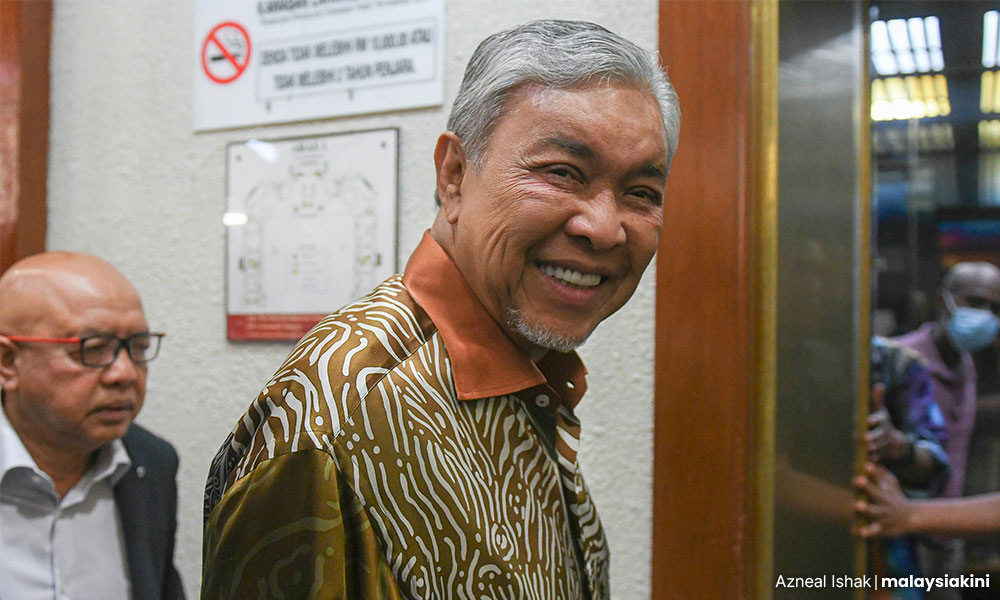The Malaysian Bar is unimpressed by Attorney-General’s Chambers’ (AGC) explanation on Tuesday of its decision to withdraw 47 corruption charges against Umno president Ahmad Zahid Hamidi.
In a statement last night, Bar president Karen Cheah said the AGC’s press release was “devoid of proper justifications”, especially since the move gives the court no choice but to grant Zahid either a dismissal not amounting to an acquittal (DNAA) or a full acquittal.
“It, therefore, rings hollow for the AGC to wholly attribute the withdrawal of the case to the High Court and use that as a reason in the media statement, instead of providing a detailed explanation,” she said.
Cheah (above) said the AGC decision at such a late stage of the court proceedings has also tarnished the AGC’s credibility as a prosecutor and the MACC’s credibility as an investigator.
She points out that by the time the prosecution was called off, the court had already held 77 days of hearings, heard testimonies of 99 witnesses, and the prosecution had established a prima facie case against Zahid.
A court ruling that there is a prima facie case means the prosecution has successfully established a case against the accused, who will be convicted of their charges unless they successfully rebut the prosecution’s evidence during their defence.
The 47 charges were for Zahid’s alleged criminal breach of trust, corruption, and money laundering charges in relation to Yayasan Akalbudi funds.
‘Cogent’ reasons
In its press release on Tuesday, the AGC said its decision to drop charges against Zahid was based on “cogent” reasons that were “given and accepted by the court”.
It did not say in the statement what those reasons were.

When applying to court for a DNAA, the prosecution had told the court that the DNAA request was for several reasons, including to allow the MACC to conduct further investigations; to look into the possibility that there was selective prosecution; and to wait for the Royal Commission of Inquiry on former attorney-general Tommy Thomas’ memoir.
On the trial judge Collin Lawrence Sequerah’s ruling that precious judicial time and taxpayer money would be wasted if the prosecution does not proceed with further charges soon, Cheah said it should avail itself to Section 254A of the Criminal Procedure Code if it decides to do so.
This would allow it to resume the case as though no DNAA was granted.
The Bar also renewed its call for the role of the attorney-general and the public prosecutor to be separated to ensure the public prosecutor is free from executive influence and maintain public confidence in the criminal justice system.
“Zahid’s case has shown all of us that it is increasingly urgent that pivotal changes must take place by 2024 so that our criminal justice system is strengthened to remove prospects and/or appearance of bias in the way politicians are being charged, and in the way charges against them are being withdrawn,” Cheah said. - Mkini




No comments:
Post a Comment
Note: Only a member of this blog may post a comment.